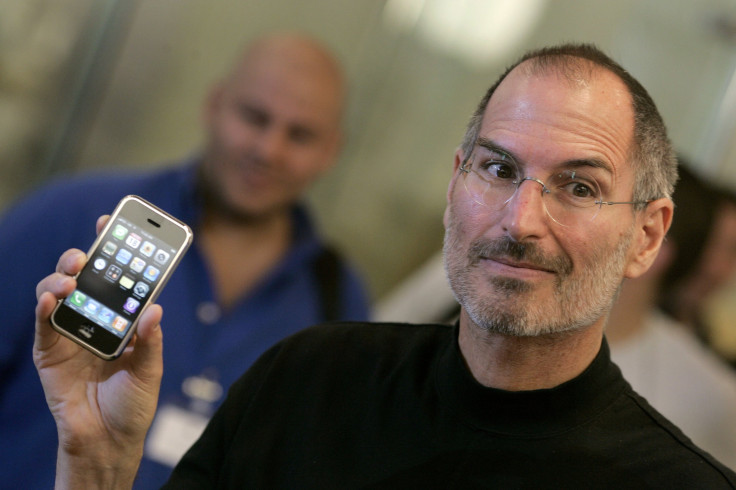Steve Jobs: Why Does America Have An Obsession With The Apple CEO? New Study Explains

Millions of Americans are expected to fill theaters across the country this weekend to see "Steve Jobs," the new movie about the late Apple co-founder, played by Michael Fassbender. But a new report says the excitement suggests more about our culture than it does about the visionary Apple leader. That's the finding of a professor at the University of Vermont, who concluded that people enjoy movies about successful businesspeople because they help them view capitalism as humane and having moral integrity.
The paper, which was published in the International Journal of Communication, explores why Americans seem to have an insatiable appetite when it comes to Jobs. The biopic, released Friday, is the second major film about his life since his death in October 2011. The first, "Jobs," was released in 2013 and starred Ashton Kutcher. Jobs' life also inspired the best-selling book "Steve Jobs" by journalist Walter Isaacson published the year Jobs died.
"I think the reason is in our culture: We love the story of Jobs because we love the story of the guy who bucked convention, pursued his passions and got rich doing so," said Thomas Streeter, a professor of sociology at the University of Vermont, who authored the paper.
In the paper, Streeter argues that corporations such as Apple deliberately entwine narratives into their empires. He writes:
"For more than a century, American society has been arguing with itself about big corporations. Are they good or bad? How should we think about them? Corporations shower us with lovely stuff like cars and microwaves, and yet they are global, faceless bureaucracies that generate pollution and create unaccountable power and wealth inequalities. The news coverage and stories put a personal face on corporate capitalism, which, deliberate or not, acted as a rejoinder to the criticisms of corporations then coming from union organizers, activists and reformist politicians. Corporations are not faceless bureaucracies that the stories implied; they are the product of unique, colorful, bold men. American media has offered a pretty steady diet of colorful stories about the lives of corporate chieftains, from Edwin Land to Jack Welch to Richard Branson and more, stories that treat executives as celebrities. Those stories don't just happen. Executives typically have publicists who cultivate these stories the same way politicians craft personal narratives about themselves when running for office.
Streeter's advice for how to see the new Jobs movie? "Remember that the movie is not about how to run a corporation any more than Hamlet is about how to run a country. And then enjoy the performances, which I hear are excellent," he said.
© Copyright IBTimes 2024. All rights reserved.






















